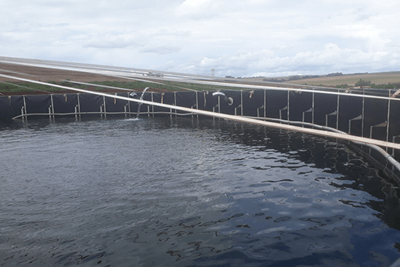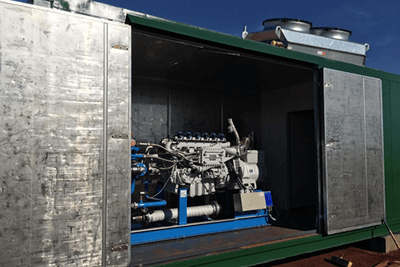


This project is implemented by ME-LE Energietechnik GmbH, a turnkey plant constructor for the power engineering and building industry from Germany and Santa Clara Álcool de Cereais S.A. (website not available) the owner and operator of a corn ethanol plant in Mato Grosso region of Brazil. The main objective is to develop a first concept of a technologized biodigester for Santa Clara Álcool de Cereais’s ethanol plant.
Bioethanol represents more than 40 % of the Brazilian fuel consumption and it is an indispensable part in the domestic Brazilian value creation chain. The total amount of ethanol production for fuel used in 2016 was more than 24 Mio. m³ comprised by more than 400 ethanol plants using mainly sugarcane. A bioethanol production plant like the one that will be operated by Santa Clara Álcool de Cereais S.A and will produce approximately 500 tons/day of corn vinasse, having a strong negative effect for the environment without the adequate treatment.
Besides the environmental problem, energy prices are highly volatile and supply of electricity sometimes discontinuous hence the need for finding new decentral solutions for energy production.




This project aims to apply the ME-LE Group’s knowhow in treating residues from agriculture and industry by integrating anaerobic digestion and fermentation processes to Santa Clara’s bioethanol plant in order to produce renewable energy to be used in the plant or sold to the grid.

Laboratory analyzes specifically carried out in the scope of the project have shown that processing 1 m³ of vinasse from Santa Clara’s bioethanol plant can yield in more than 400 m³ of valuable methane.
The biodigester and its associated biogas system will incorporate a CHP (Combined Heat & Power) system of up to a 3.2 MW. 50% of the electrical output is forecasted to be consumed directly by the Bioethanol plant and 50%of the resting output to be sold to the grid.
Using proven environment technology with all its positive side effects can solve not only environmental problems but can also strengthen the local supply of electricity with a more continuous and stable supply of energy which leads to better predictable economic actions of private consumers, enterprises and public institutions.